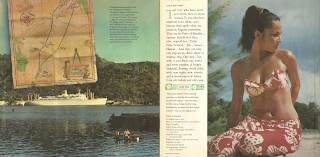The Kid
Mr. Shing-A-Ling
Lou Donaldson
Cover Photo & Design by Reid Miles
Recording Engineer: Rudy Van Gelder
Blue Note BST 84271
1968
Alto Saxophone - Lou Donaldson
Trumpet - Blue Mitchell
Guitar - Jimmy "Fats" Ponder
Organ - Lonnie Smith (courtesy of Columbia Records)
Drums - Leo Morris
From the back cover: Lou Donaldson celebrated his homecoming to the Blue Note roster with one of the biggest selling albums of his prolific recording career.
Alligator Boogaloo (Blue Note 4263) was not lonely another excellent display of his mastery as an alto saxophonist, it established him as a jazz artist whose ears are very much attuned to the sounds of today. Thus his album also produced two best selling singles in the title tune and Rev. Moses.
Lou suddenly found his records being played by many jocks on R& B stations who programmed him liberally, and for Lou he was rediscovered by many jocks and stations whose jazz programming had been almost nil since the advent of format programming.
Indeed this was a tribute to Lou. And, it merely gave proof of what most of the working writers in jazz ave been saying for years. Lou can communicate with an audience, and his sound is as much of the present as any of the big selling record artists. Possibly his lack of completely breaking through was due to the limitations of jazz exposure. But, he is well on his way now.
In this present album, Lou has once again called upon Lonnie Sith, Organ, and Leo Morris as his back up rhythm section. He has added Blue Mitchell a fellow blue Note stable mate and a leader in his own right on many Blue Note albums, including his most recent Boss Horn (Blue Note 4257) and introduces Jimmy "Fats" Ponder on guitar.
If there is a winning combination, why break it up? In Lou's case, he has always opened the door to bright, young new musicians. And he always selects the established musicians who believe in lyricism and melody.
Thus Mr. Shing-A-Ling is a welcome follow-up to Alligator Boogaloo.
Ode To Billie Joe was a tune that came out of left field, landed on the best selling record charts, and established Bobbie Gentry as a new voice in the folk-rock field. On the hells of the popularity of the tune, King Curtis released an instrumental version almost identical with the track of the original. But the inventiveness of a true jazz musical is not to be denied. Here Lou takes the tune and gives it a new treatment. In his version. there is every indication that more jazz musicians will begin adding it to weather books. He has slowed the temp, accented the beat, and with Fats Ponder, Lonnie Smith and himself digs deep into the tune giving Billie Joe far more depth.
Lou's only original in the album is The Humpback. This tune might be classified as a typical Donaldsonian opus. There is never a need for Lou to prove his technical facility. He writes simply and leans heavily on the melody. Blue Mitchell is the perfect companion. His solo is spare, but not sparse.
The Shadow Of Your Smile, Johnny Mandel's theme from The Sandpiper, is a showcase for his beautiful crystal sound. In this day with the electronic gadgets are making inroads, Lou defies these new elements in the clarity of this tone. If we are to look for influence, there is much of Charlie Parker in evidence. (Do you still remember Bird?)
Lonnie Smith makes his writing contribution in Peepin'. Here is a young man, whose seniority in jazz is less than five years. A self taught organist. Unlike many of his peers, he did not play piano and then with to organ. He began on organ, and h his tastefulness belies his tender years.
This is a tune designed for the young generation and the oldsters too, who like a danceable beat. The improvisations laid down by the musicians are the joy of jazz. Their embellishments and individuality are the foundation of the jazz arts, and with Lou as the influence, so much can be said with simplicity.
Harold Ousley, a fine tenor saxophonist, who writing talents are gaining slow recognition, is represented here with The Kid. It's a loose chart that allows ample interpretation. Each man shapes his improvisation on the sustained beat.
If Lou Donaldson with his new found popularity by the hit makers on radio becomes a most marketable artist, then his long years of paying dues maybe about over.
Among the many dissidents of the jazz arts who always claim they can neither understand nor keep time with the music of the jazz musician, Lou Donaldson offers a sampling here that his jazz is easily definable.
As we noted on his Alligator Boogaloo album,"... As one of the chief ambassadors of the people to people type jazz communication, this alto saxophonist, who has shown great concern for continuing the tradition of combining the old with the new, celebrates his homecoming with a new album that promises to continue his prominent position as one of the outstanding contributors to the sound of happy jazz."
And... on this new album, he continues to communicate.
– Del Shields - WLIB/FM, N.Y. - Executive Secretary, NATRA
Ode To Billie Joe
The Humpback
The Shadow Of Your Smile
Peepin'
The Kid

































